How the Social Security Administration is Waging a Silent War on Thousands of Poor People in Eastern Kentucky
Transcription
National Lawyers Guild
https://www.nlg.org/the-conn-crisis-how-the-social-security-administration-is-waging-a-silent-war-on-thousands-of-poor-people-in-eastern-kentucky/
The Conn Crisis: How The Social Security Administration is Waging a Silent War on Thousands of Poor People in Eastern Kentucky
Posted on October 10, 2018
[Content Warning: This article contains content of a sensitive nature relating to suicide.]
By Tyler Crawford* & Jessie Boas,*Fordham Law NLG
On June 2, 2015, Melissa Jude was on the way to Ned Pillersdorf’s office when she pulled over to the side of the road and ended her life. The week before, SSA demanded that she justify her benefits or pay back every cent, and Jude learned she would not get her records in time to meet the deadline.
Melissa Jude was not the first of Conn’s clients to take their own life, and Pillersdorf worries that there will be more. When Jude received her termination letter, so did 900 others in eastern Kentucky. Pillersdorf remembers when the letters arrived in Floyd County. Local attorney John Earl Hunt called Pillersdorf.
“Ned,” he said, “there will be suicides.” And since then, termination letters have arrived in the mailboxes of at least 3,000 people.
“My staff thinks I have 20 cases,” said Pillersdorf one day, “I have 40 and rising.”
It began in 2013 when then U.S. Senator Tom Coburn released a report titled, “How Some Legal, Medical, and Judicial Professionals Abused Social Security Disability Programs for the Country’s Most Vulnerable: A Case Study of the Conn Law Firm.”
In 1993, Eric Conn opened a law practice in a trailer next to his childhood home in Stanville, Kentucky. Over the next 23 years, he soon earned the nickname “Mr. Social Security” and built the largest disability benefits practice in the United States. Conn used an elaborate scheme of bribing doctors, administrative law judges, and SSA officials in one of the largest governmental frauds in US history.
By 2013, Conn housed his operations in an elaborate trailer complex on Interstate 23, a roadway known as “Country Music Highway” which slinks through the heart of Appalachia’s coal country. At his peak, Conn had over 300 billboards, a statue garden complete with a Lincoln Memorial replica, and a satellite office in Beverly Hills, California. By the time of his 2016 indictment, he had become the third highest paid disability lawyer in the United States.
“When Memorial Day hit, the deluge started. The calls came in, the mailbox was full, and then the suicides started,” said Pillersdorf, “Now we have a code for the highest risk of suicides, ‘Talkers,’ and we prioritize them for representation.”
The first round of SSA termination letters quickly expanded from 900 to 1,600 people and Ned began a one-man mission of raising awareness about the cases. Soon, Pillersdorf enlisted the help of Appalachian Research and Defense Fund (AppalReD Legal Aid), an organization founded in 1971 by poor people advocates and located two blocks away.
Ohio legal aid lawyer Rob Johns was months into his new job as executive director of AppalReD, where he was working tirelessly to stabilize the organization after years of financial strain. But when the letters started arriving, Johns and AppalReD threw themselves into defending claimants.
“It wasn’t a choice,” Rob Johns later said, “We had to do whatever we could to do to help.” Johns, who had never practiced in Kentucky, started representing clients and going to the courthouse to file continuance motions.
Pillersdorf and AppalReD started organizing meetings at the Floyd County Courthouse for Conn’s former clients.
“The rooms were packed,” said Kelly Ward-Allen, “Claimants were terrified.”
At the first meetings, there was standing room only. Soon, the scrappy group of two dozen lawyers working over an area of 37 counties had hundreds of clients. AppalReD started putting out the call for help and recruiting volunteer attorneys to represent clients.
“Some attorneys felt it was an obligation to the public,” said Ward-Allen, “and some wanted to rebuild the image of lawyers in the field of disability.”
In the first round of cases, over 100 lawyers volunteered to help. Of the approximately 1,600 cases, 250 people kept their benefits without a hearing and about 800 others lost them. These numbers, however, hide an important statistic. “Those with lawyers have a 75% success rate,” said Pillersdorf, “and those without only win 20% of their cases.”
Claimants often wait until the day of their hearing before trying to get help, and then it is too little and too late as there are only so many lawyers who can help in eastern Kentucky. Upon unfavorable judgments claimants are given notices ordering repayment of hefty sums, sometimes up to $100,000.
“There are people who really need this, who are losing coverage,” said John Rosenberg, founder of AppalReD, Appalachian Citizen Law Center (ACLC), and lifelong advocate for the poor, “The ones who have lost, it is a terrible situation. It is a humanitarian crisis for families.”
The Conn Crisis comes at a time of vulnerability for Appalachia. For the last decade, a never ending stream of crises have wracked Appalachia: the loss of the coal industry, the subsequent subprime mortgage, and the Opioid epidemic. In many if not most counties, the population has dropped by ten percent or more in a mass exodus spanning over five years. But the poverty population remains fixed because the poorest do not have the resources to leave. Now the Conn cases are flooding court dockets.
“People are trapped,” Ward-Allen said.
This summer alone, another 2,000 letters were received by Conn’s former clients. “Every time I go to the food mart, somebody says ‘I’ve got another letter,’” said Pillersdorf, “I don’t know how people are getting by.”
Since the terminated started, lawyers have accused SSA of violating due process. Litigation remains stalled in the 6th Circuit and does not seem likely to be resolved soon. Worse, the Lexington Herald-Leader reported this month that Pillersdorf and others have recently learned that hundreds of boxes of medical records are sitting untouched in Conn’s former offices.
“We had no idea,” said Pillersdorf, “because Conn’s people told former clients that their files were no longer available at the office.”
In March, Pillersdorf asked the U.S. Department of Justice to seize Conn’s properties. Then in May, Pillersdorf desperately asked the Kentucky Bar Association to use its authority under state law to appoint a special commissioner to receive the files.
In June, John D. Meyers, executive director of the KBA, informed prosecutors that it would not be appointing a receiver for the files. “The process for appointing a special commissioner is cumbersome and time-consuming,” said Meyer.
“The files could have made a difference,” said Pillersdorf, “At this rate, hundreds of former Conn clients either have or will have gone through hearings without their files.”
Conn initially pleaded guilty in 2017, taking a 12-year federal prison sentence, and then earlier this month, 15 years were added to his initial sentence for a total of 27 years. The court also ordered Conn to pay over $175 million in damages. Back at the SSA, however, justice is slow-coming for Conn’s clients. Although the SSA is allowing lawyers to represent clients remotely, Pillersdorf and AppalReD worries that volunteers have started to drop off.
“Private attorneys are just not showing up to help like they were before,” said Rob Johns.
With thousands more cases left unresolved, Pillersdorf and AppalReD have started a campaign of recruiting law students to help. While knowledge of social security is helpful, the hearings are narrowly focused, meaning that lawyers can start to plug in immediately and help.
“The truth, though, is that we need law students,” said Pillersdorf, “while every seasoned lawyer who helps makes a major difference, 2,000 is too many people. The challenge is to expand the role of students.” Some schools, such as Berkeley, Georgetown, Vanderbilt, and Fordham, have established clinics for students who want to come to the help of Conn’s former clients. Even so, it may take years for Conn’s clients to ever find justice.
“Most of his clients were legitimately disabled,” said Pillersdorf, “and Conn rarely met with them unless they were late paying his fees.”
In late July, we sat with Ward-Allen at AppalReD’s office. Rumors were circulating that Conn’s office might have files for as many as 12,000 of his former clients, and that the SSA might start removing benefits for clients disabled as early as 2003.
“The Conn Crisis has been going for three years,” said Ward-Allen, looking out her window as the clouds tumbled over the hills of eastern Kentucky. “I hope it ends soon, but I retire in 16 years and worry that it might still be going on.”
In the summer of 2018, we went to Appalachia to work as Guild members with AppalReD Legal Aid, and like many others, we had never heard of Eric Conn or the crisis he started. After living and working in Appalachia, we departed in August knowing that we had an obligation to share what we had learned. We knew that Conn’s clients needed the support of an organization, one that had always answered the call to fight injustice.
We knew that we needed the Guild.
The NLG is working with Ned Pillersdorf and AppalReD to mount a response to the crisis. If you want to help, fill out our form here. Email ConnAid@nlg.org with any comments or questions.
For Guild members in New York City: On October 10, 2018, the Stein Scholars Program for Public Interest Law and Ethics at Fordham Law in conjunction with Fordham NLG will be hosting Ned Pillersdorf to conduct a training on representing former Conn client disability claimants. Please feel free to join us at the training at Fordham Law, 150 West 62nd Street, New York, from 4:30-6:30pm in the Moot Courtroom on the first floor.
*Tyler Crawford is a National Lawyers Guild Haywood Burns Fellow and third-year law student at Fordham University where he is a Stein Scholar with the Stein Center for Law and Ethics and specializing in legal aid, worker advocacy and community organizing.
*Jessie Boas is a National Lawyers Guild member and third-year law student at Fordham University where she is a Stein Scholar with the Stein Center for Law and Ethics and specializing in immigration, policy advocacy and access to justice.
===
Clarion Ledger
https://www.clarionledger.com/story/news/politics/elections/2018/10/04/mississippi-congressional-candidates-equal-pay-sexual-harassment/1414190002/
Women voters in the midterms: Mississippi candidates address equal pay, sex assault
Sarah Fowler
Taylorsville sophomore Ty Keyes currently leads the state with 2,135 passing yards. As a freshman, Keyes totaled 4,532 with 45 touchdowns. Mackenzie Salmon
Across Mississippi, women are being urged to become a force in the November midterm elections.
Mississippi Black Women's Roundtable, part of the National Coalition on Black Civic Participation, has organized voter registration drives, voter education forums and "kitchen table conversations," according to organizer Cassandra Overton Welchlin.
Welchlin said said the movement is discussing "increase in minimum wages, equal pay for equal work, paid sick days and family leave, access to affordable child care, access to health care, reproductive justice and health, and better protections against domestic violence and sexual assault."
"Black women, particularly black women in the South, have always been central to movements for economic, political, and social justice," she said. "Black women in Mississippi have the highest voter turnout in the country during presidential elections. It’s time for a power shift and black women in Mississippi have the ability to that."
In Mississippi's congressional elections in November, Republican U.S. Sen. Roger Wicker is facing Democratic state Rep. David Baria.
Republican U.S. Sen. Cindy Hyde-Smith was appointed to her seat in April. She is being challenged in a Senate special election by Republican state Sen. Chris McDaniel and former Democratic U.S. Secretary of Agriculture Mike Espy.
Democratic state Rep. Ted Evans and Republican District Attorney Michael Guest are vying for the U.S. House seat being vacated by Republican Rep. Gregg Harper.
The Clarion Ledger asked each of the candidates questions on equal pay, family leave, civil rights and sexual misconduct.
Mississippi is one of two states without an equal pay law. Recent efforts to pass one in the state Legislature have failed. Should Mississippi have an equal pay law?
U.S. Sen. Roger Wicker, R-Mississippi
Wicker: As a former Mississippi legislator, I fully understand that local lawmakers are the ones best suited to make decisions at the state level. Federal law already requires equal pay for equal work through the Equal Pay Act of 1963, which prohibits compensation discrimination based on sex. I have also cosponsored legislation introduced by Sen. Deb Fischer, R-Nebraska, to strengthen the Equal Pay Act by prohibiting employers from retaliating against their employees for inquiring about or discussing their wages.
State Rep. David Baria
Baria: I have introduced an equal pay for equal work law every legislative session for the last five years. And for the last five years this bill has failed to even come out of committee. According to the National Women’s Law Center, 21 percent of women in Mississippi live in poverty while the national figure is only 13 percent, and over half of all single mothers live in poverty, a full 25 percent higher than the national average ... It is long past time for Mississippi to enact legislation that ensures women make as much as men. Simply put, there is no way for our state to move forward when half of its citizens are paid a mere fraction of what their male counterparts make for doing the same job.
U.S. Senator Cindy Hyde-Smith
Hyde-Smith: I absolutely believe a woman doing the same job as a man should earn the same wage. Discrepancies should not be tolerated. Compensation should not be about gender, but performance. Federal law already provides protection from pay discrimination based on sex under the Equal Pay Act. As a woman and former state senator, I fully understand that it is the state and local officials who will decide what’s best for Mississippians. Federal law gives states flexibility to determine the best policies for their citizens, and I trust the judgement of leaders in Mississippi to determine how best to address wage discrepancies.
Former U.S. Rep. Mike Espy
Espy: I do not accept that a woman can be paid less than a man for doing the same job, and none of us should accept Mississippi being the last state without an Equal Pay Law. In the second quarter of 2018, women earned 81.3 percent of the median weekly earnings of men, according to the Bureau of Labor Statistics ... We should prohibit employers from retaliating against workers for discussing their wages, recognize employers with good pay practices, and provide assistance to small businesses that need help adopting such practices.
State Sen. Chris McDaniel, R-Ellisville
McDaniel: There is already a federal law on the books, the Equal Pay Act, signed into law by President Kennedy in 1963. Gender-based wage discrimination is illegal and is overseen by the federal EEOC. So, equal pay has been the law of the land for 55 years. Furthermore, in 2009 President Obama signed the Lilly Ledbetter Fair Pay Act into law, overturning a 2007 Supreme Court decision on the statute of limitations for filing a pay discrimination suit. This amended Title VII of the Civil Rights Act of 1964 to provide further protections
Michael Guest
Guest: As a candidate for federal office, I believe that issues like this should be left up to the states to decide for themselves. I support our state Legislature and trust their ability to pass laws that are in the best interest of the people of Mississippi.
State Rep. Michael Evans
Evans: Yes, I believe Mississippi should have an equal pay law on the books. Even though there's a federal law requiring it, to have it in writing in Mississippi's statutes makes a statement that we believe in equal pay for equal work. I think it would go a long way to help lift women's earning power in this state. With so many women heading up households, increased pay for them will mean a better life for their families. It's only right.
Should companies provide paid family leave?
Wicker: Private businesses should be able to provide benefits packages to their employees that meet their needs and help them to attract the best employees ... The Tax Cuts and Jobs Act included a tax credit for employers to provide paid family and medical leave when employees need to address a serious health issue, care for an aging parent, or bring home a new baby. This provision, based on legislation I cosponsored, gives a voluntary incentive for employers to expand these family benefits.
Baria: I believe that companies should provide paid family leave for both parents when there is a new child born or when there is a sick parent. A woman and her family should not have to choose between their job or starting a family ... There have also been studies that show that recovery time is less when you allow for paternity leave — allowing both parents to adjust and adapt to their new child. There should also be a policy in place for caring for a sick parent. Just as we do not want a woman to choose between starting a family and moving forward in their career, no one should have to weigh the options of caring for a family member or moving ahead with their career.
Hyde-Smith: The Family and Medical Leave Act provides up to 12 weeks of job-protected leave per year for employees of public agencies, public and private schools, and companies with 50 or more employees ... I believe FMLA benefits are justified and well-intended, but also that companies deserve to have a say on a case-by-case basis.
Espy: Whether someone needs time to address a serious health issue, bond with a new child, or take care of an ill parent, we must expand paid family medical leave. The United States is the only modern nation without a national paid leave program. A child’s birth or adoption may mean stretched finances and unsettling concerns about whether caring for a new baby will cost parents their jobs. We must expand paid family medical leave.
McDaniel: I think it's great when companies choose to provide benefits such as paid maternity and paternity leave. I imagine employees are attracted to employers who offer those benefits.
Guest: I support any decision made by a company in an effort to attract or retain their employees by offering incentives such as maternity and paternity leave.
Evans: I believe that this country is the only developed nation that doesn't have family leave law as a mandate. Anybody who's been faced with taking care of a newborn or an elderly parent understands the amount of hard work it takes. When workers feel like they've taken care of their families, they can do a better job. We have many companies who already offer this benefit to their workers. I'd like to see everyone do it. I hope to see family leave in the law sooner than later. And I agree that fathers should have the same rights as mothers to leave when they have a new baby.
If elected, what equal rights and/or civil rights legislation would you introduce, if any?
Wicker: I am proud of my record on equal rights. Most recently, I have introduced legislation to make the home of slain civil rights leader Medgar Evers a National Monument within the National Park System. I also sponsored the resolution that passed the Senate recognizing national Juneteenth Independence Day. I will continue to champion efforts to bring greater recognition to Mississippi’s civil rights history, and to promote equality for all Americans.
Baria: I would like to see Section 5 of the Voting Rights Act reinstated, and provisions of the act both updated and strengthened... State and local governments have begun to implement the type of measures that the VRA was enacted to defeat. These measures have been instances like purging voter rolls, strict and restrictive voter ID laws aimed at reducing turnout and cutting back on early voting, specifically targeting areas where minorities vote.
Hyde-Smith: As a sitting U.S. senator, my legislative agenda is based on the needs and priorities of Mississippi constituents. I will continue to listen to Mississippians and formulate legislative strategies accordingly. I am proud of the progress our state has made over the decades to address equal rights and civil rights.
Espy: If elected ... I will push for the immediate passage of the EMPOWER Care Act. This act would extend a wildly successful Money Follows the Person health care program that allows people living with disabilities to transition away from institutions and back to their homes. Most states, including Mississippi, will run out of program funding this fall. MFP actually lowers state Medicaid spending, helps people live independently, and has broad bipartisan support. Yet, for two years, Congress has failed to act.
McDaniel: Protecting the civil liberties and constitutional rights of American citizens is one of the most important things a government can do. Fortunately, the law provides legal protections and remedies to individuals harmed by discriminatory conduct based on race, gender and age.
Guest: Our Constitution states that we are all created equal and endowed by our creator with certain unalienable rights. If elected, I will work with other members of Congress to protect the civil rights and liberties of all Americans.
Evans: In America, we are supposed to treat everyone fairly and respectfully. I am for laws that enforce that idea, and I will support them. It’s one of the founding ideas of this country, and if we put groups of people down, or treat them as less important than others, that’s not the American way.
Are there policy changes needed regarding sexual harassment and sexual assault cases?
Wicker: There is no place for sexual harassment or assault in our society. As a senior member of the Senate Armed Services Committee, I have supported amendments to the National Defense Authorization Act to root out misconduct in the military and to provide resources and protections to victims.
Baria: I would like to see victim shield laws enacted that would prevent victims' sexual and dating history from being entered into the record or weaponized for use against them in a trial or proceeding. Far too many victims do not come forward for fear that their sexual history or dating life may be used against them or opened up for scrutiny to the entire public ... We must make efforts to not only reduce the stigma that many victims feel as well as make the process easier for them to come forward so that they can begin the process of healing and recovery.
Hyde-Smith: My heartfelt sympathy goes out to women and men who are victims of assault, abuse, demeaning rhetoric or discrimination. It’s an issue that must not be taken lightly. Sexual harassment and sexual assault is prohibited under a number of state and federal laws, and should be reported to authorities. These issues will continue to be adjudicated by the courts until state and federal legislators identify specific gaps or necessary improvements.
Espy: Congress must first clean up its own act. The House has actually passed legislation (Congressional Accountability Act) that would reform Congress’s system for reporting and investigating complaints ... Members of Congress, not the taxpayers, should pay the costs of sexual harassment settlements and these settlements should be made public. Our elected leaders should take responsibility for harassment and abuse in their own workplaces. Everyone should feel safe at work. The halls of Congress should be no different.
McDaniel: I believe in a zero-tolerance policy for sexual harassment in the workplace and for anyone convicted of a sex crime. To begin with, Congress should immediately move to release the names of the perpetrators whose identities have been protected by Congress's sex abuse slush fund.
Guest: As a prosecutor for the past 22 years, I’ve worked to see that those guilty of sex crimes face the punishment of the law. If elected to Congress, I will always support our law enforcement officials who are working hard to address crimes of a sexual nature to ensure that the people of our state and country have their rights protected.
Evans: We have somehow got to make it where victims feel confident in reporting attacks. Some of these reports wait decades to be revealed because of the shame that's imposed on people who should not be treated that way. That's why a full investigation of reports should take place immediately — no shaming, no belittling, no dismissing. I would encourage strong training for law enforcement, social workers, school counselors and others on how to react when an assault report is received.
More: What's holding Mississippi back? Pay gap, child care costs, report says
More: Equal pay called 'critical in Mississippi' dies in committee
Contact Sarah Fowler at 601-961-7303 or sfowler@gannett.com. Follow her on Facebook and Twitter.
Other posts by this author
|
2023 may 31

|
2023 mar 20
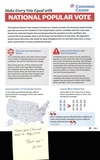
|
2022 aug 23

|
2022 aug 23

|
2022 aug 23

|
2022 aug 23

|
More... |
Subscribe
Get notifications when new letters or replies are posted!
| Posts by Charles Douglas Owens, II: |
|
email me |
|---|---|---|
| Comments on “How the Social Security Administration is Waging a Silent War on Thousands of Poor People in Eastern Kentucky”: |
|
email me |
| Featured posts: |
|
email me |
| All Between the Bars posts: |
|

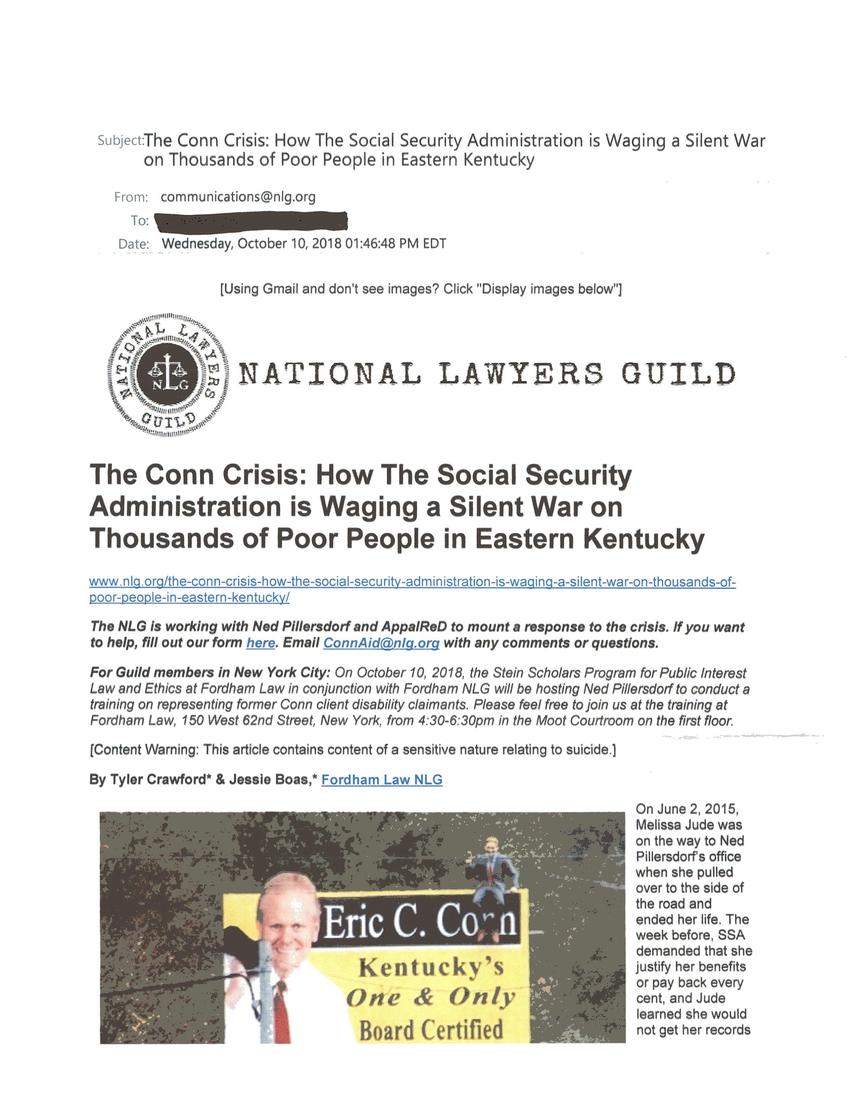
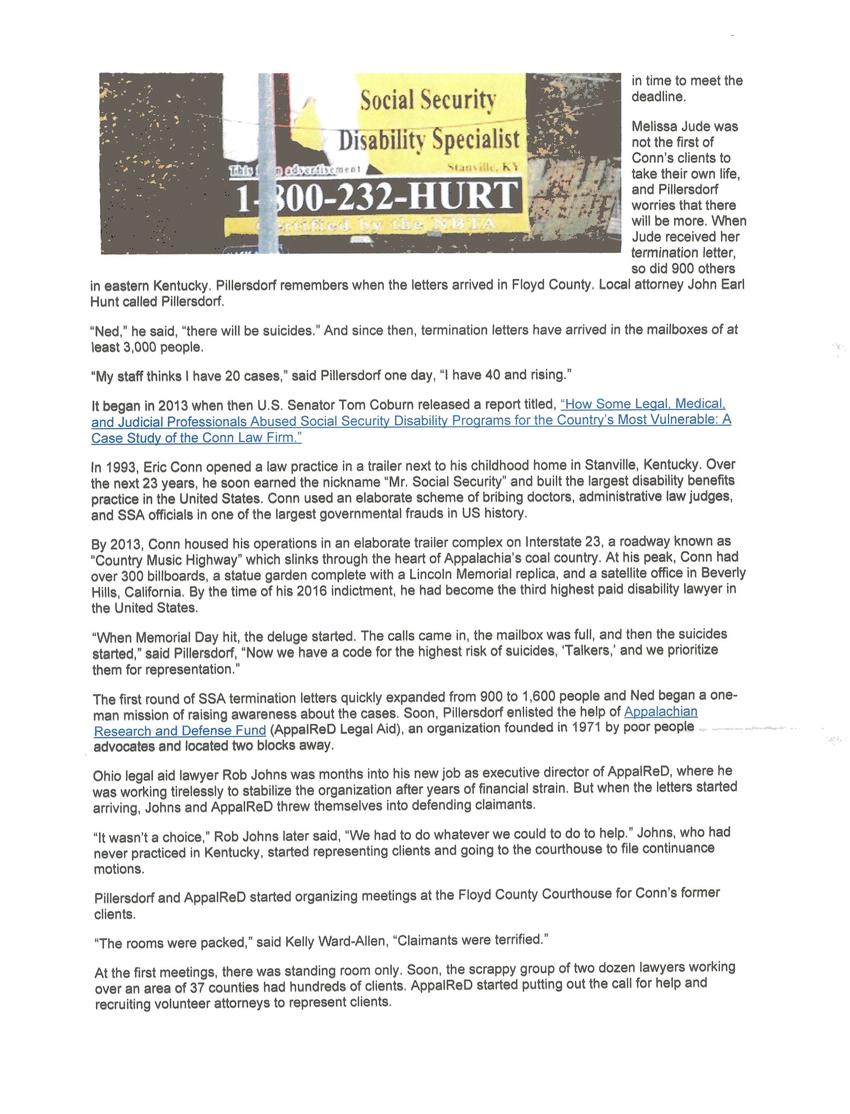
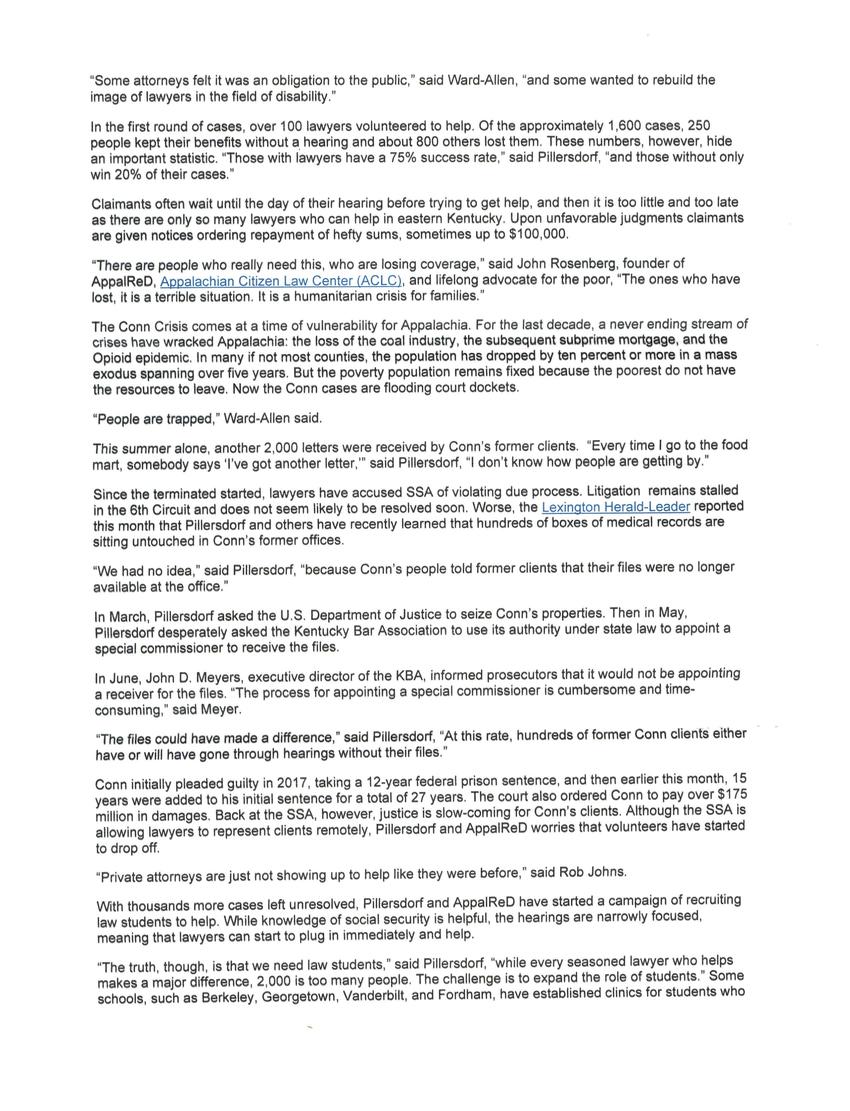

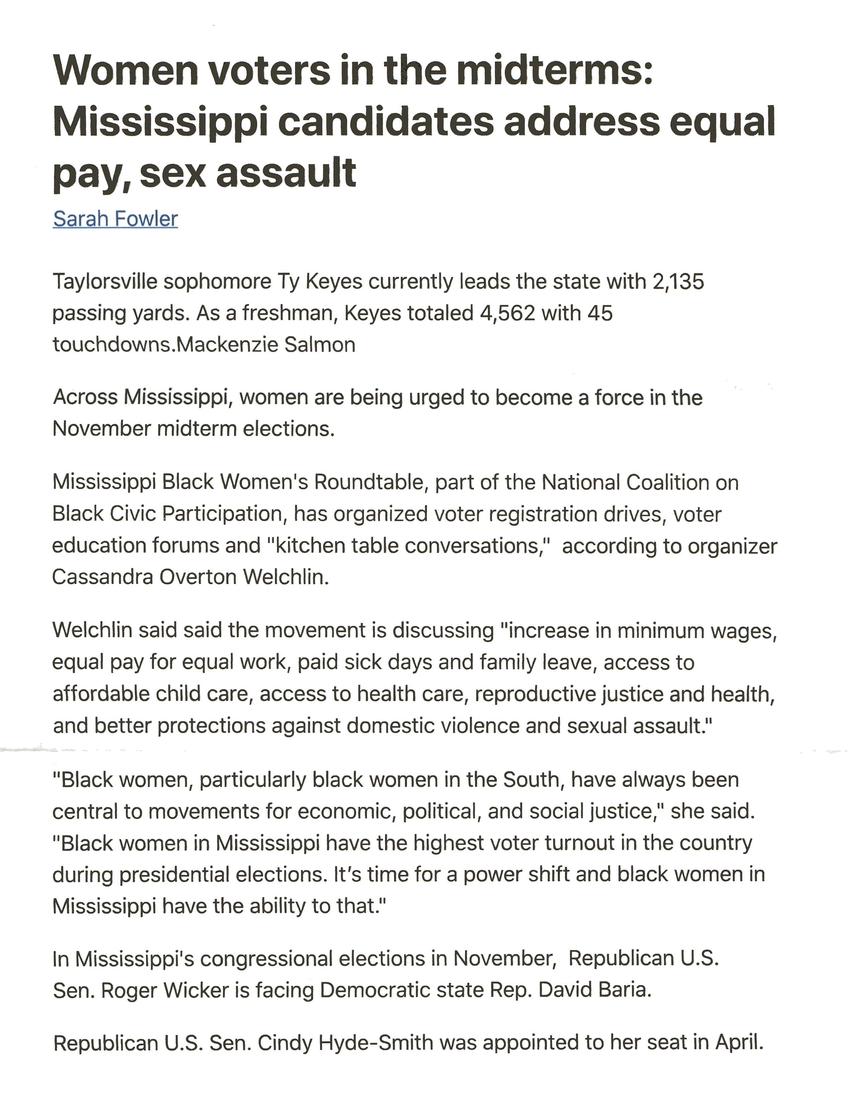
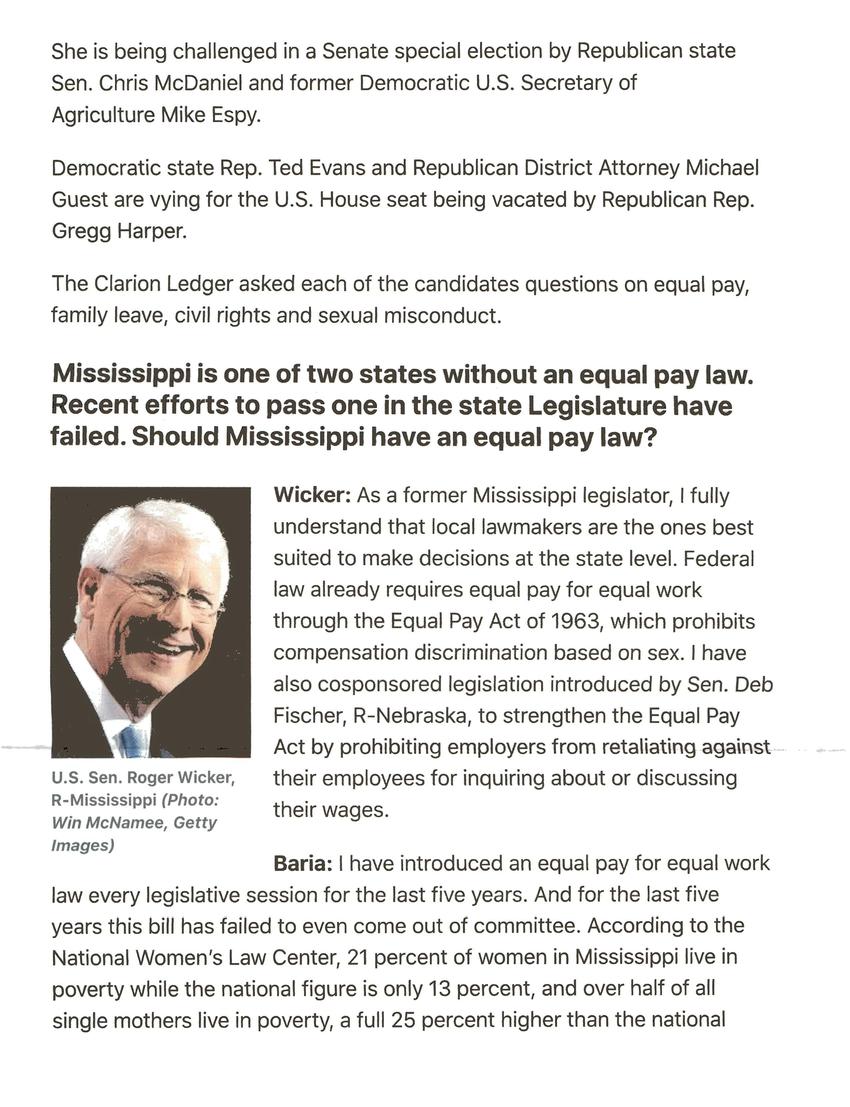
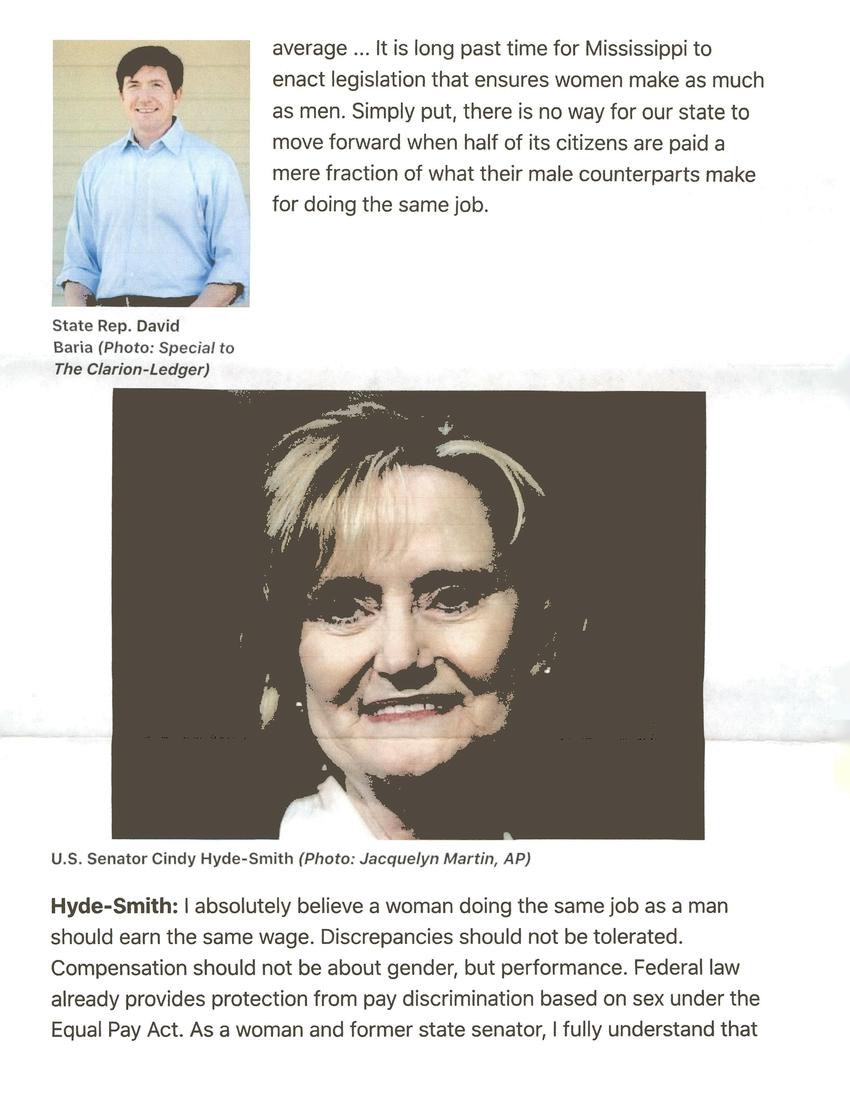
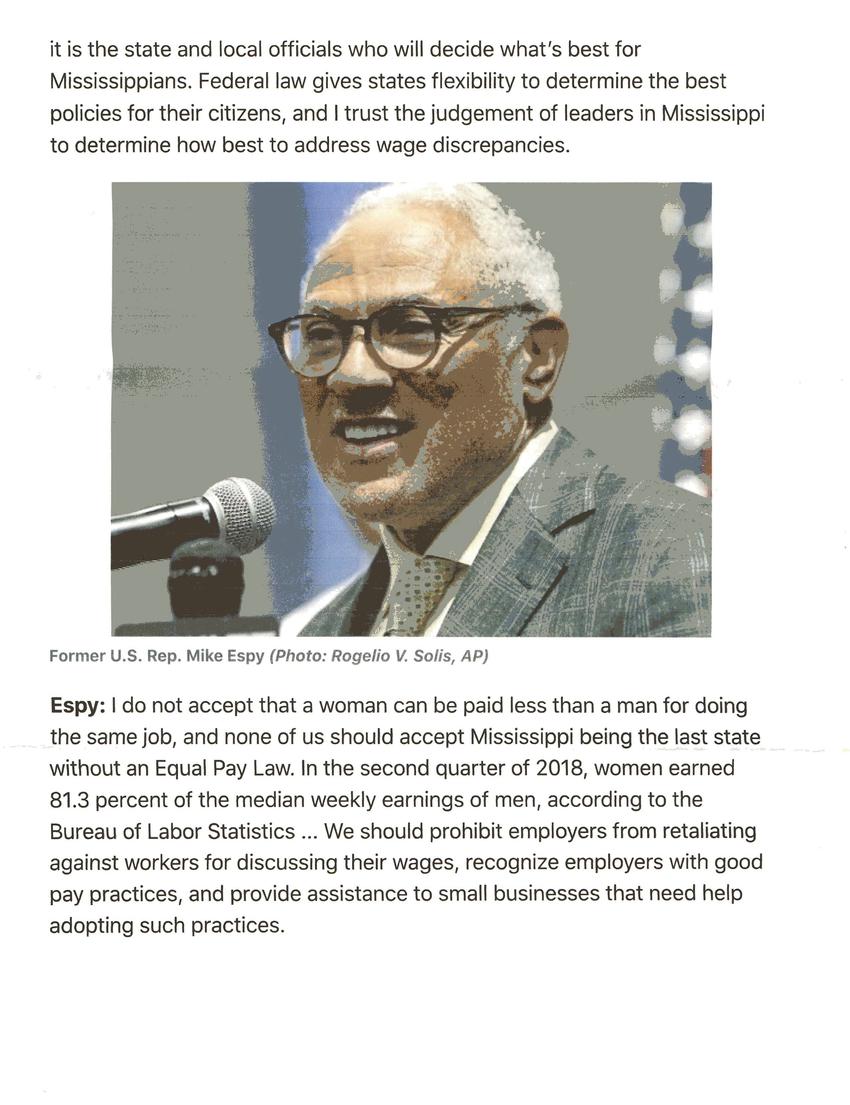
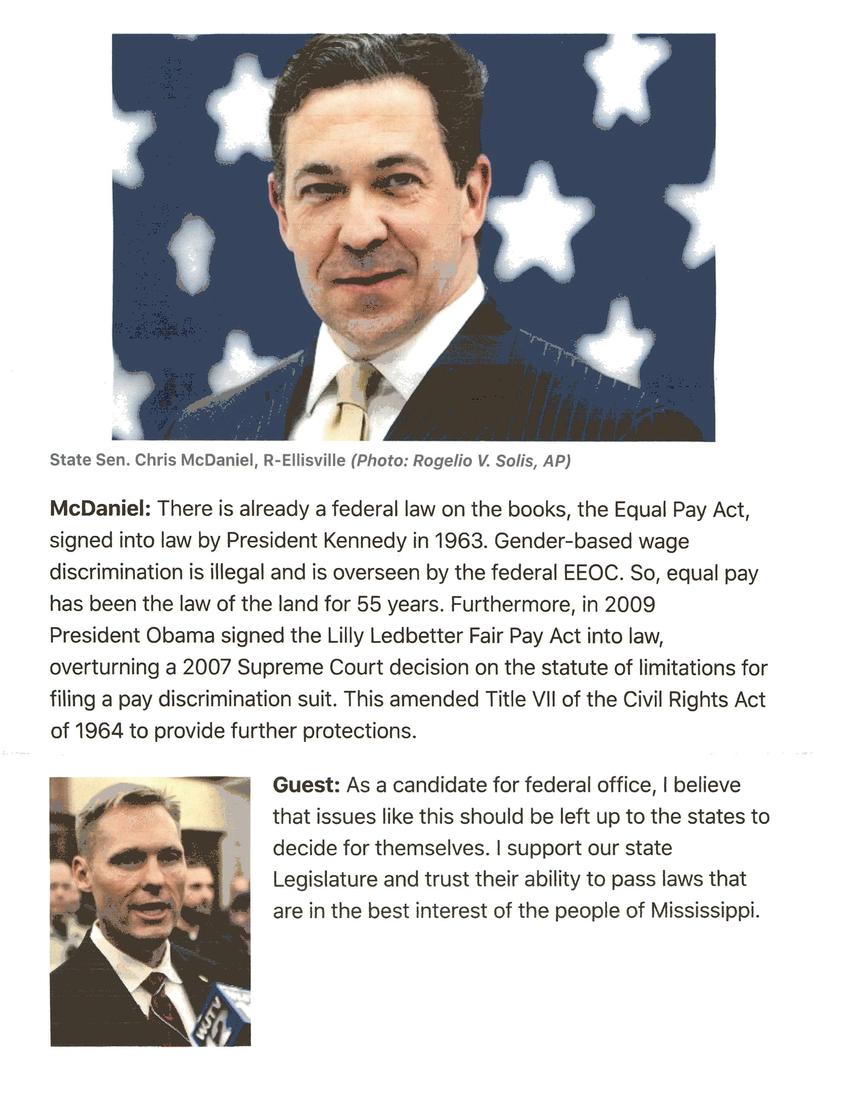
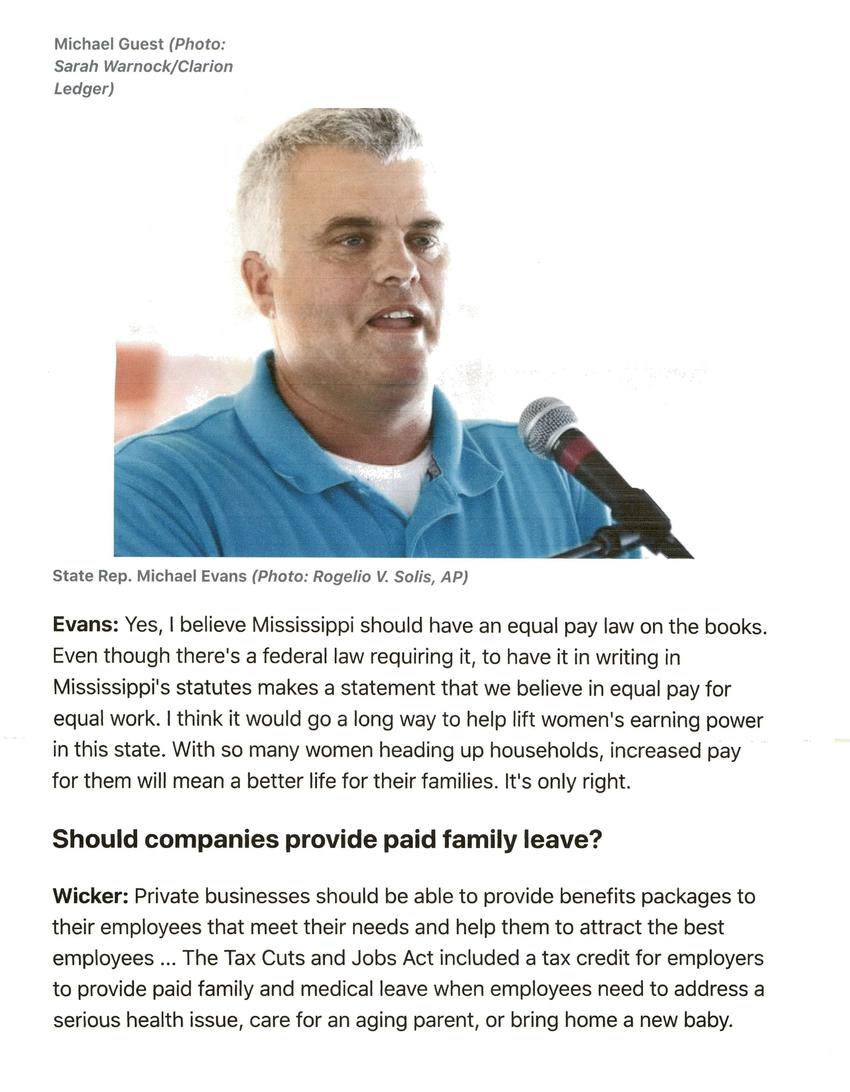
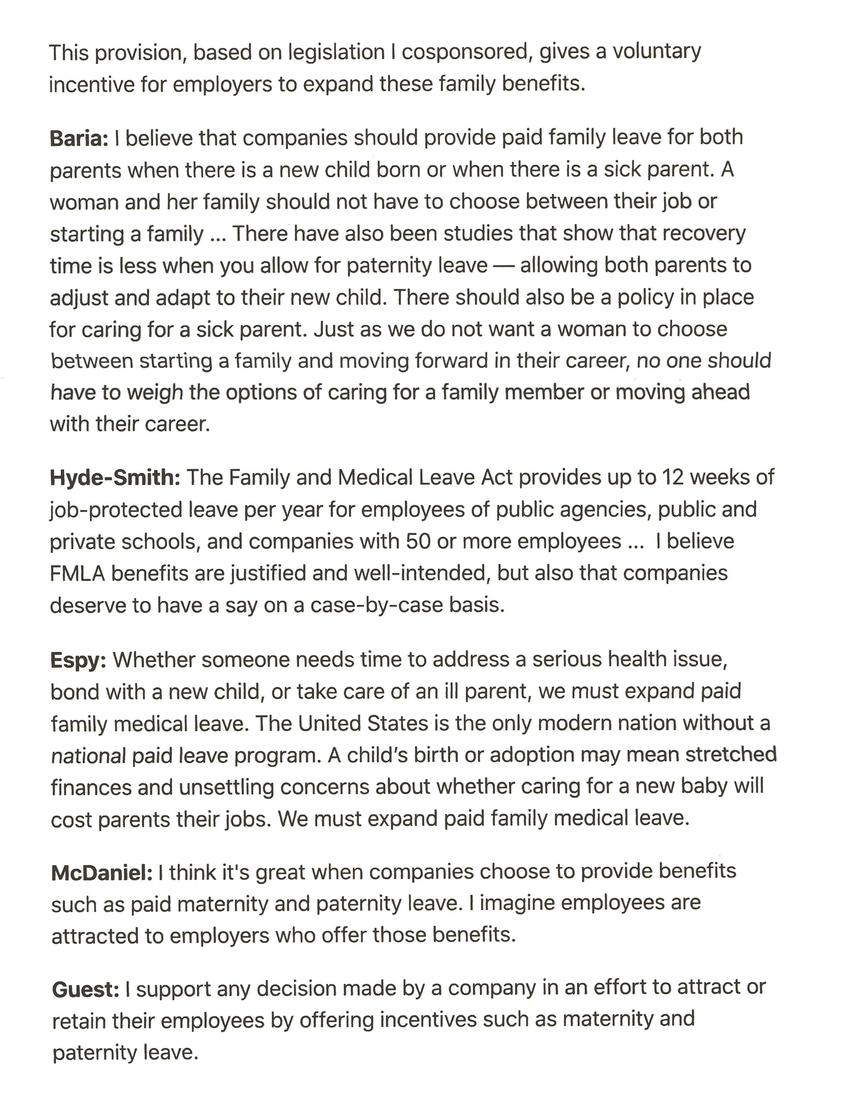
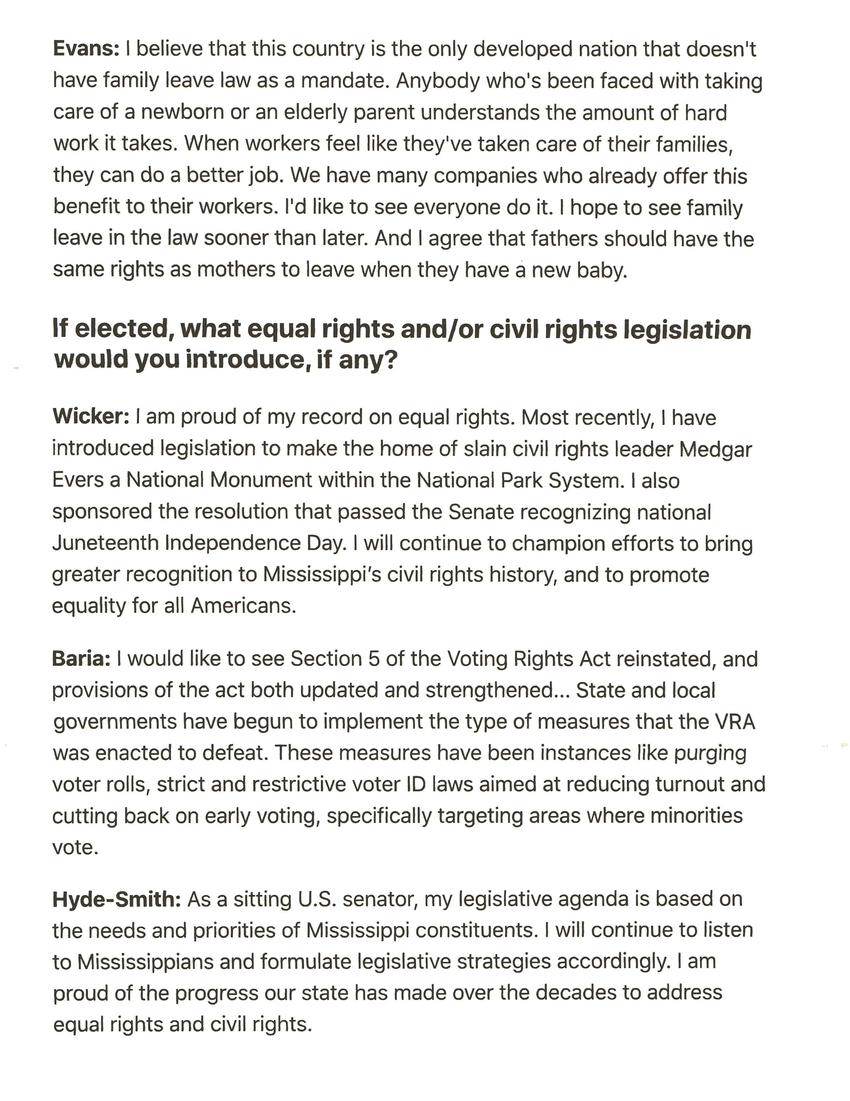
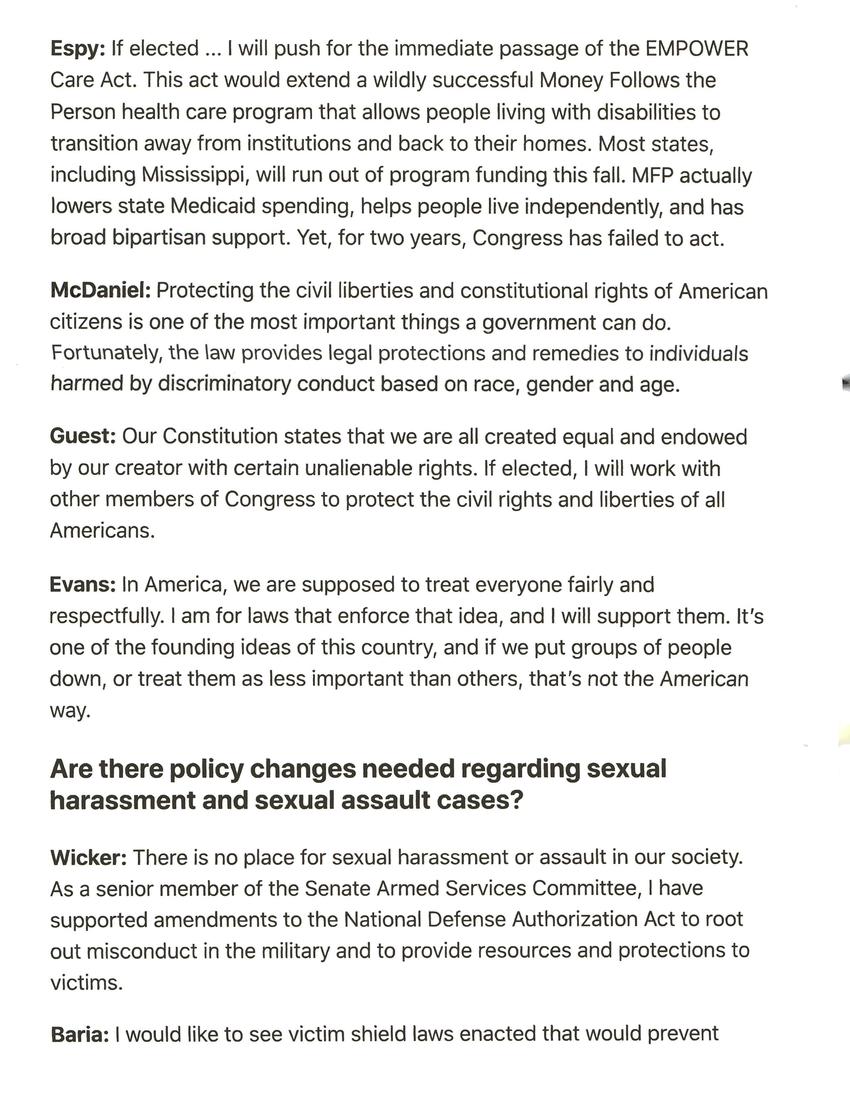
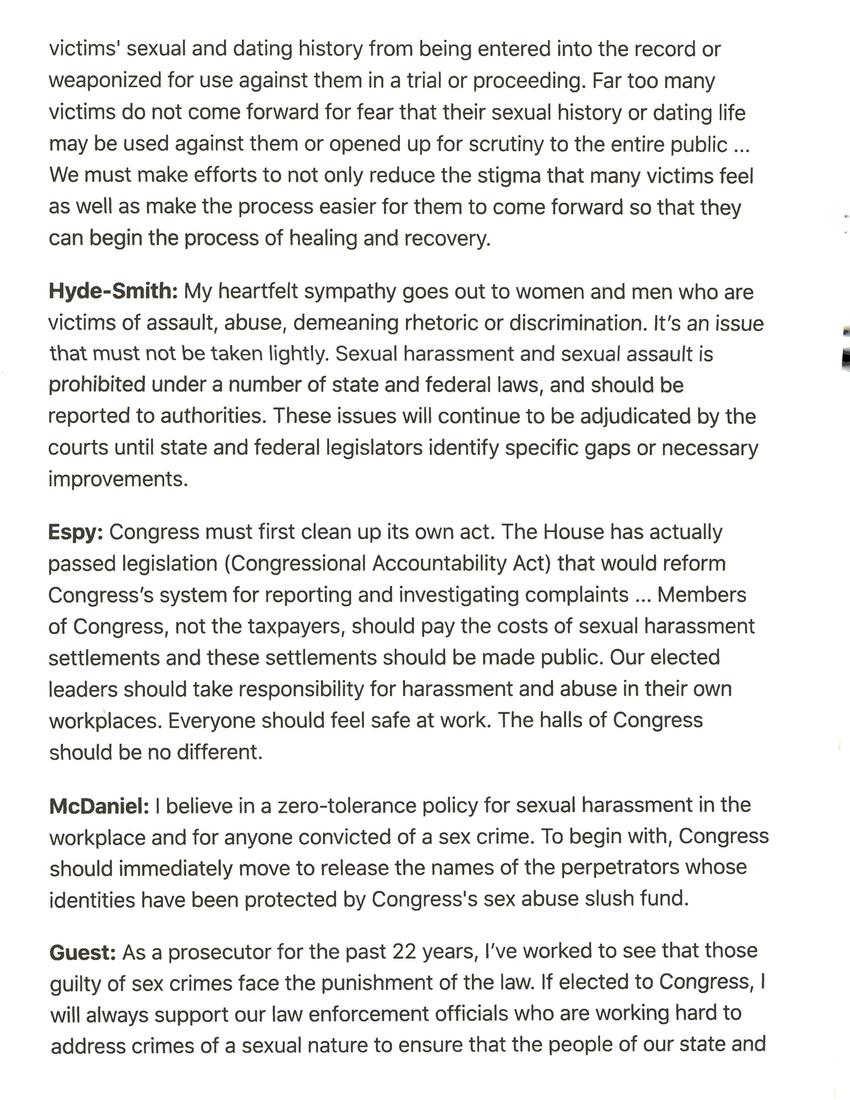

Replies